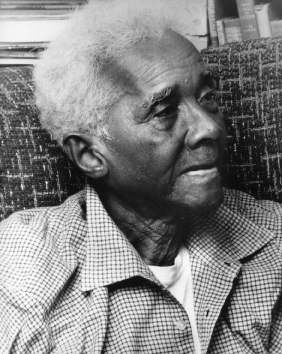A name lives on in Dalston


DALSTON in the east London borough of Hackney has a history that includes the battles with Oswald Mosley's fascists as they sought to make a post-war comeback, holding street meetings at Ridley Road. It has also been quite a cultural centre, becoming particularly known for black music venues from the late 1960s.
Add the Rio cinema, and the market, the culinary ambience of saltfish and beigels and Turkish kebabs, and social mix of artists and writers with working people from at least a dozen ethnic backgrounds.
I'd have liked to add the Unity Club, a labour movement venue in a fine house, where I attended some good events years ago, but alas that has long gone.
Just recently another kind of battle has been rumbling in Dalston. Quite a lot of local people are not convinced they'll be the ones to benefit from a "regeneration" which Hackney council is partnering with private capital, some of it based a long way from Hackney. Campaigners have complained of lack of respect for listed buildings or local shopkeepers who have been elbowed out of the plans. Working class residents fear that rising property prices will push them out of the area.
One little battle, possibly not unrelated to the bigger changes, has come our way, it seems. Back in the 1980s, after the grievances and anger of Black people and youth had erupted around Britain, including Hackney, and the miners' strike had united a wide front of working class militancy and those fighting oppression, Hackney council took a decision to name the library in Dalston, the C.L.R. James Library.
It showed a wish to make local services more responsive to Black and ethnic minority needs and aspirations - the libraries also began establishing a Three Continents Liberation Collection - and an assertiveness by the Left in Labour. That was not entirely new - in Salford we had a block of flats named after Fred Engels, and when local Tories complained they were reminded that he was a respected local mill manager.
Cyril Lionel Robert James has more than one claim to fame. Born in Trinidad, he was to become an important figure in the Trotskyist movement in both Britain and the United States, albeit at odds with others and later branching out with those who felt Trotsky's analysis of the Soviet Union was inadequate, and seeking a more libertarian perspective.
But like his compatriot Learie Constantine, CLR had originally gone to Lancashire for cricket, and wrote about the game for the Manchester Guardian, going on to write Beyond A Boundary, hailed as the best book ever on this - and some say, any - sport.
He was also the author of Minty Alley, published by Secker and Warburg in 1936, the first novel by a Black West Indian author to be published in this country. He wrote a play about the Haitian revolutionary Toussaint L'Ouverture, which was performed with Paul Robeson as the star. Then in 1938 he wrote what is probably his best-known book, The Black Jacobins, a classic history of the Haitian revolution which has been republished more than once, and graces the shelves of many who might not otherwise have liked C L R James uncompromising brand of leftism.
Like many of us who come to London, James lived at different addresses over a time - I seem to remember he and his family living near Willesden Green Library in the early 1960s, later he moved to Brixton, but at some time he was in Dalston apparently.
When it was reported that the CLR James Library would be replaced by a new Dalston library that would not bear his name, as part of the Dalston Square redevelopment, this raised concern and protests, including an online petition that I was pleased to sign. I wondered whether making CLR an unperson might give an idea of what 'regeneration' meant for those he championed, as well as for culture in Dalston. The promise that there might be a plaque commemorating him was not enough.
Well, as we enter Black History Month, this piece of news came out today, October 7:
A message from Black and Ethnic Minority Arts to supporters of the campaign to retain the name of CLR James Library:
Following a short meeting between representatives of BEMA and Members and officers of Hackney Council, an in principle agreement has been reached that the name of the new facility will carry the name of CLR James Library as per our campaign demand. A formal statement will follow shortly. Many thanks to the thousands who have supported our successful campaign online and in other ways.
Bema will be playing an ongoing role in the development of a permanent CLR James exhibition at the new library as well as the establishment of an annual event commemorating his life and work".
Ngoma Bishop & Andrea Enisuoh
http://luna17activist.blogspot.com/2010/10/victory-for-clr-james-library-campaign.html
(thanks incidentally to Tyneside campaigner Alec Snowden for keeping an eye on NE London from the NE of England!)
an earlier report:
http://www.hackneycitizen.co.uk/2010/10/04/storm-over-clr-james-set-to-rage-through-black-history-month/?sms_ss=facebook&at_xt=4caa378292139443%2C0
and that ongoing battle over Dalston's "regeneration":
http://opendalston.blogspot.com/
Labels: Books and Writers, History, London, minority rights

0 Comments:
Post a Comment
<< Home